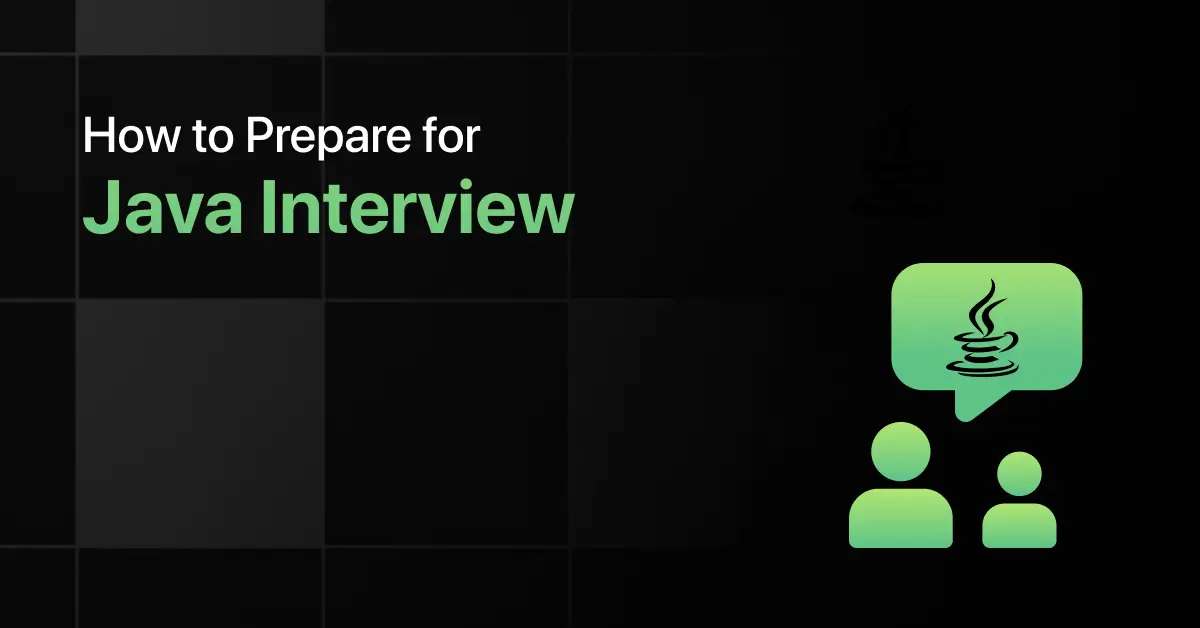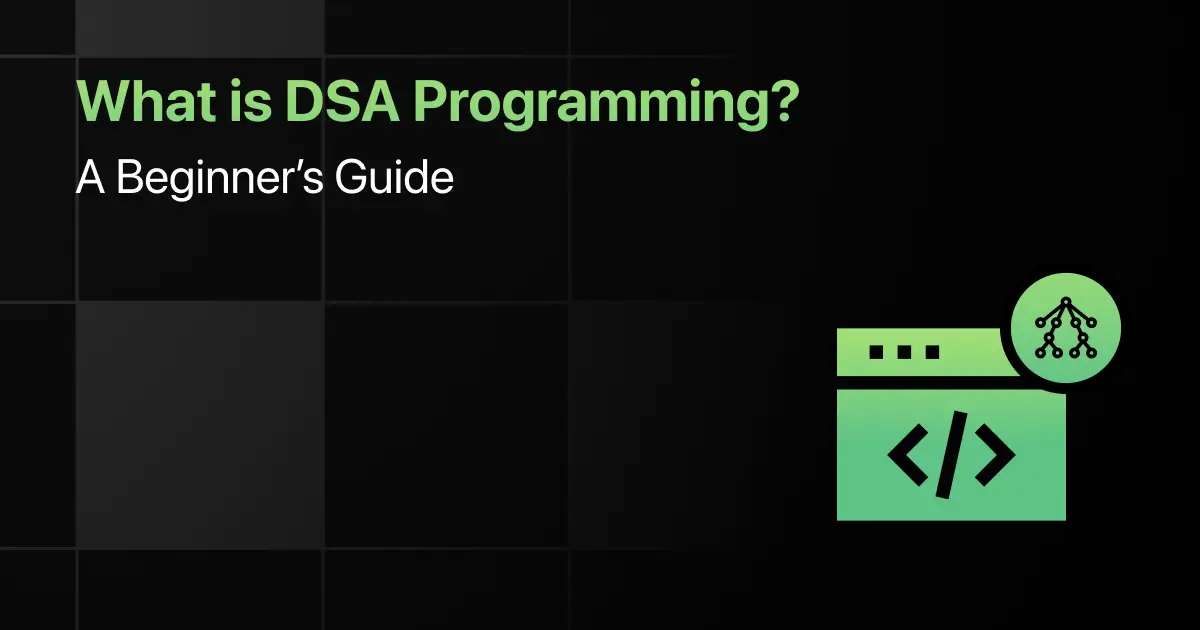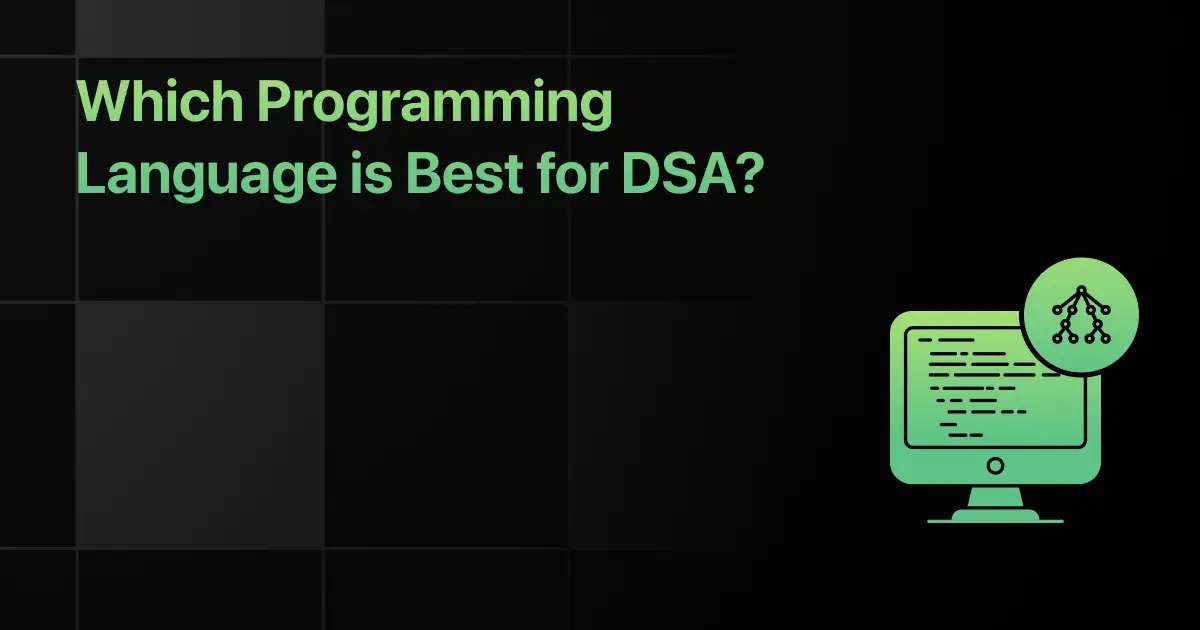How to Prepare for Java Interview

Are you preparing for your upcoming Java interview but unsure where to start?
It can feel overwhelming to balance core concepts, coding practice, and revising common questions all at once. Many candidates face this exact challenge and end up missing out on opportunities despite having the knowledge.
This blog will guide you through a structured approach to Java interview preparation, helping you focus on what matters most and build the confidence to succeed. By the end, you’ll know exactly how to organize your study plan and enter the interview room with clarity.
Java Interview Preparation Guide
Preparing for a Java interview requires more than just knowing the syntax—it’s about applying concepts like OOP, collections, and exception handling in real scenarios.
Learning from practice questions and exploring real interview experiences can give you valuable insights into the type of challenges companies expect you to solve.
1. Master the Core Fundamentals
Before moving on to advanced problems, it is essential to revise the core concepts of Java thoroughly. Interviewers often begin with fundamental questions to assess your understanding of the language. Key areas to focus on include:
- Object-Oriented Programming (OOP) principles – inheritance, polymorphism, encapsulation, abstraction
- Data types, variables, and operators
- Control flow statements – loops, if-else, switch
- Strings and arrays
- Collections framework – List, Set, Map, and their implementations
- Exception handling and error management
- Input/Output streams
- Multithreading and concurrency basics
- Java Memory Management and Garbage Collection
- Building a strong base in these areas ensures that you can handle both conceptual and coding questions with confidence.
2. Practice Coding Problems Consistently
Consistent coding practice is one of the most effective ways to prepare for a Java interview. Working on problems regularly helps you apply theoretical concepts to practical scenarios and improves your problem-solving speed.
Focus on solving problems related to arrays, strings, recursion, linked lists, stacks, queues, trees, graphs, and dynamic programming.
Apart from practicing Java on online platforms, it is equally useful to write code in an IDE, debug errors, and optimize your solutions. Over time, this habit will make you more comfortable with real interview coding environments.
3. Prepare for Commonly Asked Interview Questions
Apart from problem-solving, interviewers test candidates on frequently asked conceptual and practical Java questions. Reviewing Java interview questions helps you get familiar with the interview pattern and builds confidence.
Some commonly asked questions include:
- What are the main features of Java?
- Explain the differences between JDK, JRE, and JVM.
- What are the principles of OOP and how are they implemented in Java?
- How does Java achieve platform independence?
- What is the difference between an abstract class and an interface?
- How is memory managed in Java, and what is garbage collection?
- What is the difference between == and .equals() in Java?
- How do HashMap and HashSet work internally?
- What is multithreading and how is it implemented in Java?
- Explain the concept of synchronization in Java.
- What are checked and unchecked exceptions?
- What is the difference between final, finally, and finalize()?
- How does Java handle string immutability and String Pool?
- What are lambda expressions and functional interfaces in Java?
- Explain the working of Java Collections framework.
Going through these questions systematically prepares you for a wide range of discussions in both technical and HR rounds.
4. Preparation Tips
A structured preparation strategy can help you stay consistent and cover all important areas before the interview. Start by creating a revision plan that divides your study time between theory, coding practice, and mock interviews.
Take at least one or two mock interviews to get used to explaining your thought process under time limits. Focus on writing clean and optimized code rather than just arriving at the correct answer.
If you have worked on any Java-based projects, be ready to explain the design choices, challenges faced, and solutions implemented.
Finally, revise key concepts one day before the interview instead of learning something entirely new, as this will help you stay confident and clear-minded during the actual process.
Final Words
Preparing for a Java interview becomes easier when you follow a structured approach that balances core concepts, coding practice, and revision.
With consistent effort and the right preparation strategy, you can confidently tackle both technical and problem-solving rounds.
Explore More Interview Preparation for
- Python
- Software Developer
- C++
- Machine Learning
- Full Stack Developer
- Front End Developer
- .NET
- C#
- PHP
- Angular
- Node JS
- C Programming
- JavaScript
- DBMS
- SQL
- React
FAQs
To prepare for a Java interview as a fresher, focus on mastering fundamentals, practicing coding problems, and revising commonly asked questions.
The most important Java topics for interviews include OOP principles, collections, exception handling, multithreading, and memory management.
You should practice Java coding problems daily on arrays, strings, recursion, and data structures until you can solve them confidently within time limits.
Yes, focusing on DSA in Java for campus placement is essential, as most technical interviews emphasize problem-solving skills using data structures and algorithms.
The best platforms to practice Java coding questions are PlacementPreparation.io, LeetCode, HackerRank, and Codeforces.
To revise Java concepts one day before the interview, quickly review OOP basics, collections, exception handling, and common interview questions.
PlacementPreparation.io is useful for Java interview preparation because it offers coding exercises, MCQs, and real interview questions tailored for placements.
Related Posts


Importance of Data Structures and Algorithms (DSA)
Why is everyone constantly talking about DSA, and why is it considered so important for programming? Many beginners focus only on …
Warning: Undefined variable $post_id in /var/www/wordpress/wp-content/themes/placementpreparation/template-parts/popup-zenlite.php on line 1050








